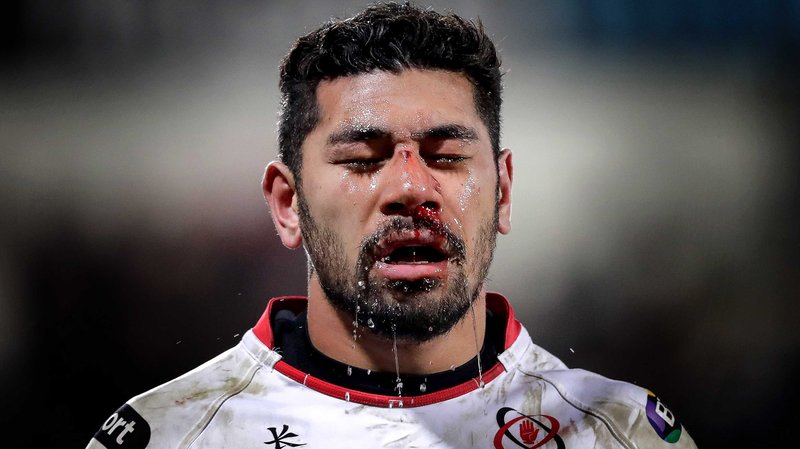The Country Conundrum
0By Scott MacLean
In case you hadn’t heard, former All Blacks Charles Piutau and Frank Halai want to play for Tonga at the next Rugby World Cup. Problem for them is that World Rugby’s rules currently prevent them doing that.
It’s not hard to see where their desire comes from, undoubtedly inspired by their countrymen’s performance in the 13-man code over the past month and want to do the same. However there is the not-so-insignificant matter that the pair are unlikely to pull on the black jersey again even if they were to both return to these shores in the near-future, and as things stands their international careers are done.
Piutau’s departure to Irish side Ulster (via a season at English club Wasps) 2½ years ago sparked some alarm here; a young player – just 23 at the time and with 16 Test caps on the resume – lured away by the big money on offer in the northern game. He’s since announced a big money move back to England for the 2018-19 northern season with promotion hopefuls Bristol, and a reunion with his old Blues mentor Pat Lam.
Question is; without his status as an All Black, would he have been in a position to earn those deals?
Halai doesn’t have quite the same pedigree with just a single Test to his name (against Japan in 2013), but was a longstanding and successful member of Gordon Tietjen’s Sevens reign.
The lockdown on switching international allegiances has been in place for many years so it’s hard to argue that either player didn’t know their fate before taking their talents offshore. As for why that is you’d have to ask World Rugby, but there’s more than an element of truth in the view that they’re protecting their own interests, lest that the Pacific Island teams beat them on a regular basis.
World Rugby has tinkered with the eligibility rules in recent times. The door was pushed ajar briefly with the games return to the Olympics with Tim Nanai-Williams amongst those who took advantage. On the flip side is that the three-year residential eligibility requirement – Hadleigh Parkes’ debut for Wales on the weekend came on the very first day it could – is being extended to five from 2021; a move World Rugby Vice-chairman Agustin Pichot hailed as “National team representation is the reward for devoting your career, your rugby life, to your nation and these amendments will ensure that the international arena is full of players devoted to their nation, who got there on merit.”
There’s an argument to be made that the current rules are fair, after all not everyone has the option of being eligible for multiple nations through birth, parentage, or residency.
My take though is that World Rugby has it wrong, and that the only thing worse than the current situation would be to adopt rugby leagues’ farcical polar-opposite equivalent. Players should have the possibility of an avenue back, albeit attached to some heavy restrictions; and fortunately I’ve already gone on the record about this:
I reckon that one-time, one-way is fine. If J Savea is done as an AB, then (say) after 2 years should be able to say he'll rep Samoa, but only after 12 months from date announcing that
— Scott (@MadMaclegend) November 14, 2017
Unfortunately it would seem for now there’s as much chance of that happening as there is of me being able to make it.
So what next though? Perhaps one legacy of the RLWC is that youngsters are inspired to play for the country of their heritage, and if developments after the weekend’s rugby Condor 7s are any indication that might already be happening.
Tongan league stars decisions to represent their heritage is rubbing off on PI boys at school boy rugby level. Two boys selected to play for the NZ Schools team for the World Schools 7s tournament next weekend declined so they can play for the Samoa Barbarians instead.
— Tino Poluleuligaga (@JIP2EZY) December 4, 2017

